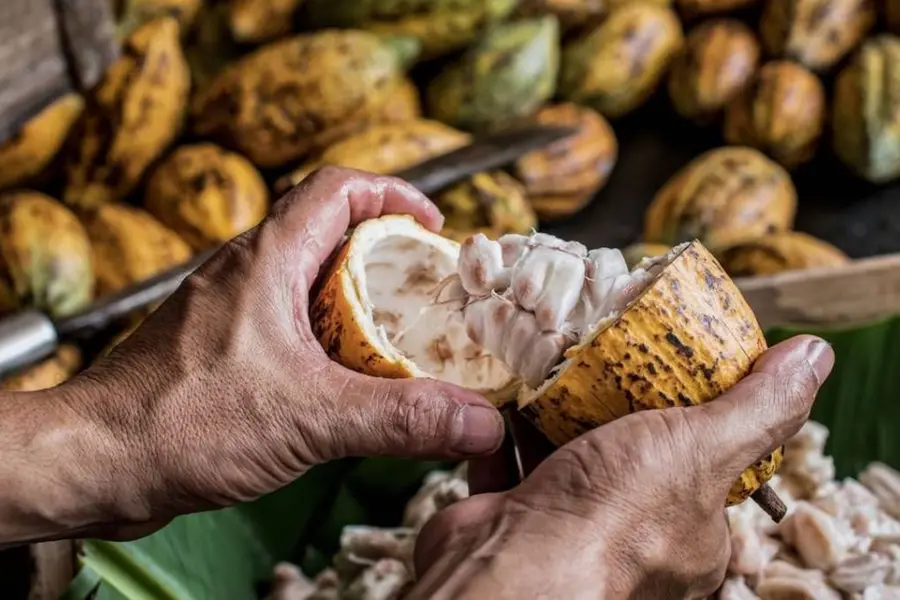Kerala Agricultural University researchers have developed cocoa husk cookies and pulp-based beverages, turning chocolate production waste into nutritious food.
The Cocoa Research Centre at Kerala Agricultural University has developed a new approach to make the cocoa husk and pulp left over from chocolate production more edible, rather than discarding them. Researchers have converted these by-products into nutritious food items, including cocoa husk cookies and a ready-to-serve drink made from the pulp.
The research initially began as a student project and, with the support of the state government, took 5 years to complete. The products are now available at the centre, and efforts are underway to transfer the technology for wider use.
Towards health care
Cocoa husk and pulp, the skin of cocoa seeds used in chocolate manufacturing, are typically discarded. Improper disposal can lead to fungal growth, mosquito breeding, and environmental issues. The fungus ‘Phytophthora’, for example, causes black-leg disease, which can result in crop losses of up to 40 per cent. This fungus also affects other crops, including coconut and rubber.

Husk cookies
High-fibre cookies made from cocoa husk powder have been developed to provide a nutritious snack. Acidity, polyphenols, and anti-nutritional factors have been removed to make them edible. The cookies are suitable for diabetics and the elderly. Two varieties have been created: one with oats and another using avil (rice flakes).
Nutritional values: Energy – 541.92 calories, Carbohydrate – 48.10 mg, Protein – 8.63 mg, Fat – 35 mg, Dietary fibre – 4.26 mg
Ready-to-serve beverage from pulp
The pulp released during cocoa fermentation can reduce the quality of cocoa nibs due to its unpleasant odour and promote fungal growth, increasing free fatty acids and posing health risks. To address this, researchers developed a healthy, antioxidant-rich drink using a portion of the pulp. Removing a small amount of pulp before fermentation improves the quality of the final beverage.
Nutritional values: Carbohydrates – 12.6 g, Vitamin C – 7.51 mg, Sodium – 563 mg, Potassium – 1,748 mg
Subscribe to our Newsletter
Disclaimer: Kindly avoid objectionable, derogatory, unlawful and lewd comments, while responding to reports. Such comments are punishable under cyber laws. Please keep away from personal attacks. The opinions expressed here are the personal opinions of readers and not that of Mathrubhumi.


